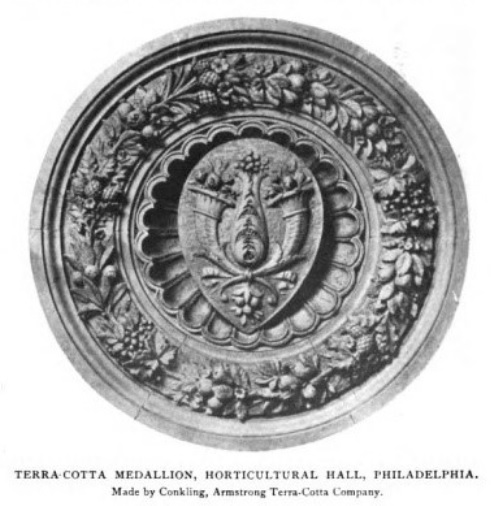Thursday, August 23, 2018
Harry (Henry) Stark Hitchcock, aka Harry Murdoch, Actor, 1845-1876, Victim Brooklyn Theatre Fire Dec 5, 1876
Image: Burning of the Brooklyn Theatre, 1876, by Anonymous (Project Gutenberg)
Phila.Inquirer 7 Dec 1876
One of 300 deaths of Brooklyn Theatre Fire December 5, 1876. Mass grave in Greenwood Cemetery for 103 unidentified bodies marked by stone obelisk.
H.S. Hitchcock aka H.S. Murdoch using his mother's surname, a name with family members already in the acting profession. Buried in Woodlands Cemetery Philadelphia.
Brooklyn Theatre Fire aftermath - 1876
Saturday, August 18, 2018
REA and Inquirer Drop Points - Pike Street, Frankford to Kensington Aves. - 1957
In memory from late Spring to Summer, there was this thing in transportation where by a truck or van is sitting around a point on the map to receive goods and to redistribute in a more refined or defined receiving marketing area.
I probably remember from late Spring into Summer because of the light factor at end of day. And also not aware of the these marketing meet ups for distribution of goods and or packages to be redistributed further into another geographic zone in darker months around 7:30 PM and the school year as distractions from noticing this street commerce.
There were these bunch, maybe two or three green REA Express vans aka (Railway Express Agency) parked on Pike Street just west of Frankford avenue and on the north side of the street. The drivers on the vans were usually on their waits on the street out of their vans shooting the breeze with the other drivers or taking a smoke. Then the arrival of the main vehicle, no difference in design, handing out packages to the assembled caravan in wait and then all present starting their vans up and the street being emptied of their presence.
The image of a cast iron toy truck is an image I remember that most resemble the vehicles in my memory. That REA went out of business in 1975, followed almost immediately by an older, smaller firm UPS which had started in Seattle and finally settled into Hartford Connecticut to take up the slack and demand for express packaging off the railroads in the wane of their importance in the American industrial scheme of things. I almost imagine that UPS Brown just painted over used REA vans picked up for a song at the bankruptcy sale.
Also about the same time on a little traveled street back then of E. Pike Street between Frankford Ave and Kensington Ave, that on Pike Street next to the back track space of North Catholic, about 7:30 PM every night was a big blue Inquirer truck arriving to distribute the 8:00 PM "early edition" of next day's newspaper to smaller vans and autos for redistributing the newspapers regionally into the growing Northeast.
Tuesday, August 14, 2018
Smoker's Tale in Harrowgate - a Philly Tale - 1957
I hate to rat out Sam some sixty odd years later about his not carding me buying a pack of cigarettes back in 1957 at his corner grocery store.
I was something like 4 or 5 at the time and buying my dad his Lucky Strikes at that corner grocery store.
A friend interested in the history of the old neighborhood sparked a memory and a story I often tell of being 4 or 5 and buying cigarettes and not being carded etc. (within a modern context of perhaps over regulation about everything in every day life.)
The pack of cigarettes back then cost 26 cents. A case quarter and a penny is the loot I usually carried in hand to fulfill the request of dad to get his daily fix of nicotine and to share with him my daily fix of second hand smoke with him if I remained indoors as he practiced his life long habit.
Dad said that he wanted to quit his "dirty habit" (not an "addiction") with rumors of a state tax increase of one cent to 27 cents which came to pass. And of course dad did not quit.
And to put this all in perspective. Sam knew that I did not smoke. And knew that I was being a "good boy" and messenger-ing a pack of smokes home to dad.
And looking back I can see where Sam who lost relatives to the Holocaust in Europe in WWII and lived through Prohibition and the great Depression probably had his own spin on man made laws as a small businessman and yet I have to wonder what the law on the books truly was back then if any to selling to minors. But he was not selling to me. He was selling to my father.
That Philly was not only a so called "city of homes" with its mega landscape of row houses with white marble stoops, that the future framework of housing for factory workers in a factory town like Harrowgate within Philadelphia County, was a future framework on a small scale of the "American Dream" of owning one's own home or being able to afford a mortgage on that home becaming a norm after WWII.
That Philly back them was more than a "city of homes", it was a city of neighborhoods, and of neighbors, like the corner grocer Sam who knew his neighbors and knew who and what he sold to those he knew as his neighbors.
Monday, August 13, 2018
Saturday, August 11, 2018
Wednesday, August 8, 2018
Tuesday, August 7, 2018
Sunday, August 5, 2018
Subscribe to:
Comments (Atom)































